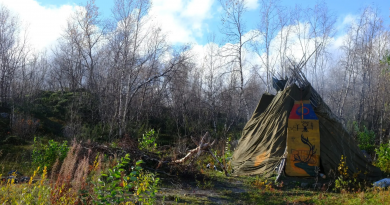“Mercury can leak out and become a threat to marine life”

By Elizaveta Vereykina
“Old mercury pollution that nature has stored for us can leak out and become a threat to marine life, the seafood we eat and our health”, – marine scientist Michael Bank is quoted as saying on the Norwegian Institute of Marine Research website. – “Climate change can also undermine the effectiveness of measures that have been taken internationally against mercury pollution.”
The Arctic is warming at a rate four times faster than the rest of the world. This means that the permafrost in places such as Siberia is thawing, and the glaciers on Svalbard are shrinking.
These processes could release methylmercury, one of the most toxic forms of mercury.
As Norwegian researchers emphasise, exposure to high levels of mercury can impair brain function and development, particularly in young people. The Norwegian authorities therefore monitor food to ensure that it does not contain more mercury than is safe.
While human activities such as burning fossil fuels release mercury into the environment, it is also a natural part of the ecosystem.
Since the beginning of the 2000s, recent regulations have helped to reduce man-made mercury pollution. However, the release into the oceans of methylmercury, which has been stored by nature for centuries, poses a serious threat to living creatures.
Methylmercury in particular is dangerous because it acts as a strong neurotoxin for both animals and humans, says Bank. Methylmercury can find its way to our plates through absorption in algae, plants, fish and other wildlife.
In one of his scientific papers, in 2023, Bank emphasises that Arctic cod in the Barents Sea, for example, is of considerable ecological and economic importance to Norway. Therefore, monitoring mercury pollution in waters and seafood is becoming increasingly important.
We need to develop effective ways of assessing the impact of mercury pollution in a rapidly changing climate, says Bank, emphasising the importance of using satellites and drones to detect potential mercury pollution factors.
Related stories from around the North:
Canada: Study warns thawing permafrost could release substantial mercury in Yukon River, CBC News
Greenland: Greenland accedes to UN treaty against mercury pollution
Danemark / Greenland: Greenland accedes to UN treaty against mercury pollution



